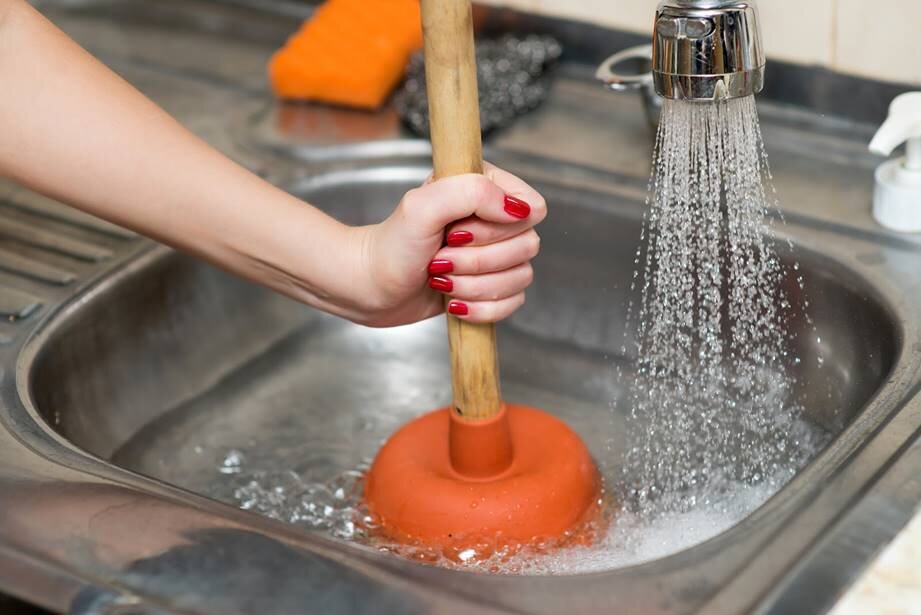Clogged drains are a serious problem that can wreak havoc on your plumbing system if you do not take care of the issue as soon as possible. Clogged drains are also a very common household problem that affects millions of people every year.
There are a few telltale signs that you should look for in order to determine if your drains are clogged.
Clogged drains can cause property damage that can cost thousands to repair. Residue may be left behind that may take hours to get rid of, and your daily chores may need to be put on hold for several hours in order to tackle your clogged drains.
Here, our focus will be on the health hazards of a clogged drain in your home.
Health Hazards of Blocked Drainage
A blocked drain will attract unwelcome guests, including pests and mould. If you do not want to attract bugs, spiders, and the like, then you should unclog your drains as soon as possible. Mould can also be very dangerous, and can cause many health issues, including respiratory illnesses.
The growth of bacteria is also something that you need to be aware of. Bacterial growth can make you very sick, and may cause respiratory distress as well as gastrointestinal issues if accidentally ingested.
Slow drainage can cause bacterial growth that can harm you and your loved ones if you do not nip the problem in the bud. Another very serious problem that may result from a blocked drain is the development of unpleasant odours.
If your home smells like garbage or rotten eggs, then you may be dealing with blocked drains. The smells can be so repugnant that you may struggle to breathe. Your eyes may water, your throat may burn from the disgusting smells, and you may even become nauseous.
If you do not want your home to become inhabitable, you should tackle your clogged drains sooner rather than later.
Some people may develop allergies that they didn’t even know existed after being exposed to the pathogens, mould, and bacteria that formed over the months due to their clogged drains.
The germs may spread into your water supply and seep into your drinking water as well, which can cause you to become very ill. In rare cases, contaminated water may even cause death, so clogged drains should not be taken lightly.
How to Prevent Clogged Drains
If you want to prevent blockages, then you should avoid dumping food particles down your drains. Hair should also be kept out of the sink without exception, and you should be very careful when flushing your toilets.
You should also try to avoid pouring liquids and greasy substances down your sink or toilet, and you should never use any chemical products when trying to clean or unclog your drains, as they are very abrasive.
Tips to Unclog a Drain
A quick and easy way to unclog your drain is to pour boiling hot water down it. If that doesn’t work, then you can try unclogging it using your handy plunger. You should also check the garbage disposal in your sink, as the source of the issue may be found there.
Mixing some vinegar and baking soda together to create a natural cleaning solution can also be used if all else fails.If the problem is severe and you cannot solve it on your own, then you should consider hiring a plumber.
Professional plumbers help solve clogged drainage issues and other plumbing problems every day, ensure that they are licensed and bonded, and that they have a proven track record of success before you hire them.
Benefits of Unclogging Your Drain
By unclogging your drain, you will be reducing the risk of pipe blockage. Blocked pipes can become damaged or even burst if not treated quickly. You will also save money that would have gone towards pipe repairs and/or replacement.
In addition to avoiding potentially serious disasters and damage, you will also prevent the development of foul odours that can make your home inhabitable. Another benefit of unclogging your drain is that you will never have to worry about noisy pipes.
Be Vigilant
You should clean your drains once a week in order to reduce the risk of clogged pipes. Your drains should be flushed at least once a week to be on the safe side. We would also strongly recommend that you deep clean your tub in order to get rid of hair, gunk, and soap residue.
Drain cleaner products may help, although we would suggest that you avoid chemical cleaners that are very abrasive. Natural products can get the job done just as well, while also not harming your pipes.











